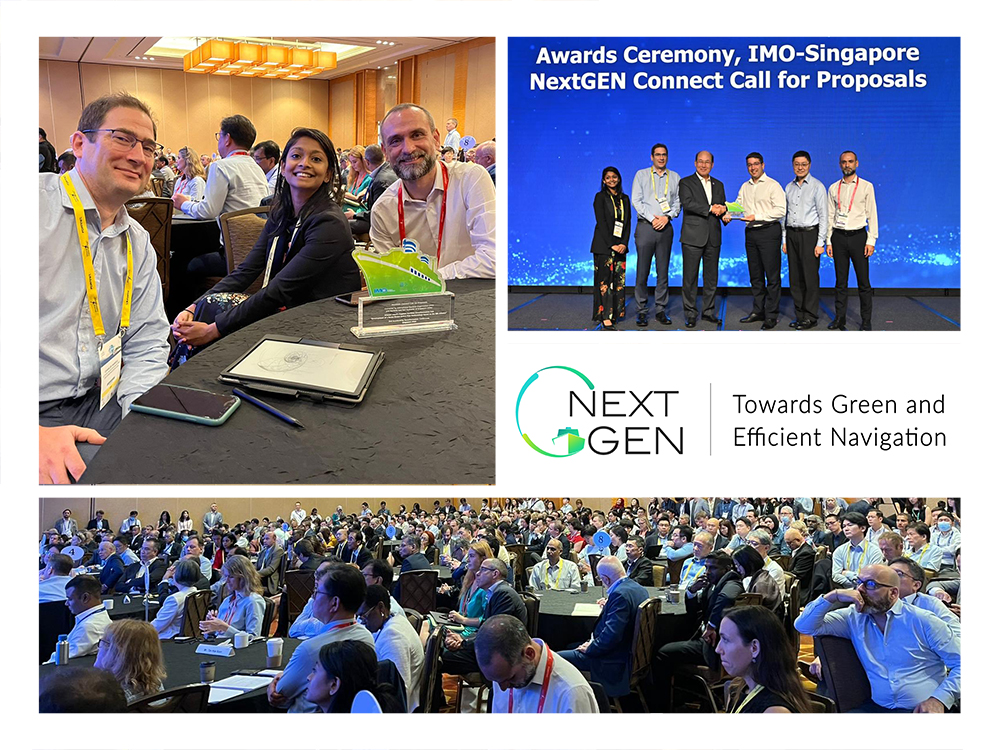The Lloyd’s Register Maritime Decarbonization Hub (LR MDH) is the winner of the Singapore-IMO NextGEN Connect Challenge, for their proposal on “Development of a Route-Based Action Plan Methodology based upon Silk Alliance”.
The challenge is part of the IMO-Singapore NextGEN initiative – where “GEN” stands for “Green and Efficient Navigation”. This challenge invited stakeholders to propose methodologies to develop actions to reduce greenhouse gas emissions along a shipping route, on a pilot basis.
The winner was announced during the 2nd Accelerating Decarbonization Conference (27 April), part of Singapore Maritime Week.
The Singapore-IMO NextGEN Connect Challenge invited proposals for pilot trials and feasibility studies to reduce GHG emissions between specific points along shipping routes.
The submissions were evaluated by a distinguished panel of international judges from IMO, the Singapore Maritime and Port Authority (MPA), the Norwegian Ministry of Climate and Environment and the Maritime Technology Cooperation Centre Asia (MTCC-Asia). The judges assessed the submitted proposals based on a set of criteria which supported the IMO 2050 emissions reduction goals, including implementation feasibility and inclusiveness.
The inaugural award goes to Lloyd’s Register Maritime Decarbonization Hub (LR MDH), for its proposal “Development of a Route-Based Action Plan Methodology based upon Silk Alliance”. The Silk Alliance is a green shipping corridor cluster project to trial decarbonization strategies for container ships operating primarily in Asia to achieve significant emission-saving impact, based on LR MDH’s “First Movers”. An initial batch of container ships will be identified to participate in this project.
IMO Secretary-General Kitack Lim said: “Maritime needs innovation and through trials and pilot projects, we can all learn and take on board best practices. IMO is supporting this through various projects, in partnership with many stakeholders. I am pleased that through the Singapore-IMO NextGEN Connect project we have seen exciting proposals presented. I congratulate the winner and I look forward to receiving the results of the trials at IMO, to share with the Member States.”
Lessons learned from the project will be actively disseminated, so that best practices can be replicated across the sector, including specifically in developing States.
NextGEN Connect aims to bring industry stakeholders, academia and global research centres together to offer inclusive solutions for maritime decarbonization for trials along specific shipping routes.
The NextGEN Connect Challenge is part of the Singapore-IMO NextGEN initiative. Launched in September 2021, the NextGEN database (nextgen.imo.org/) currently lists more than 150 decarbonization projects with more than 500 stakeholders worldwide, including IMO Member States, shipowners, technology developers, classification societies and non-governmental organisations.
NextGEN is one of a number of global projects supporting implementation of IMO’s energy efficiency measures and the Initial IMO GHG Strategy, to move the sector on its voyage towards the decarbonization of shipping. Several projects are focusing on pilot studies to assess feasibility and benefits of implementing specific technologies.
